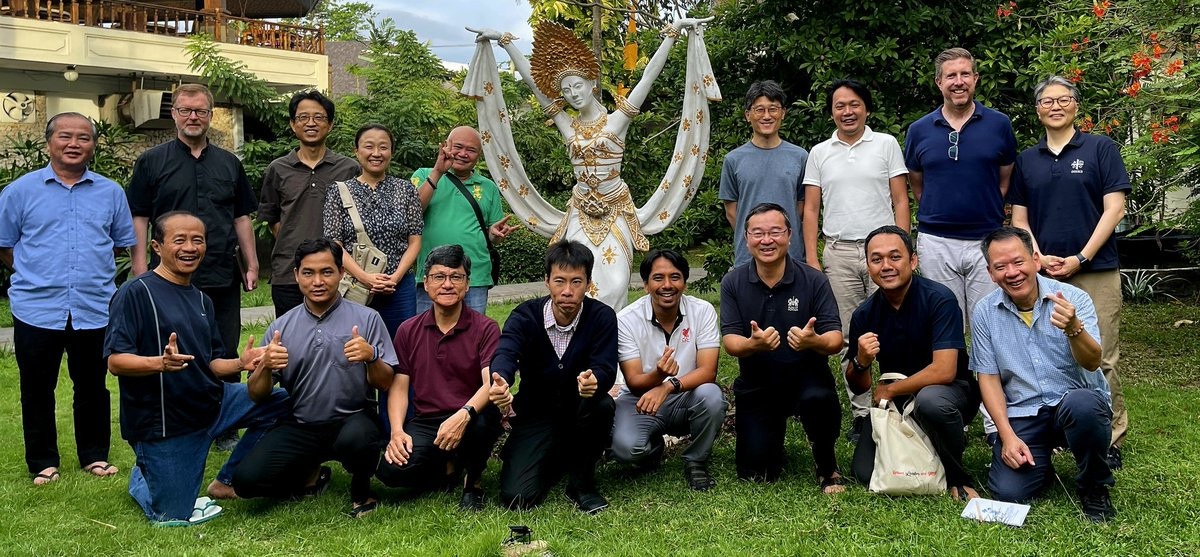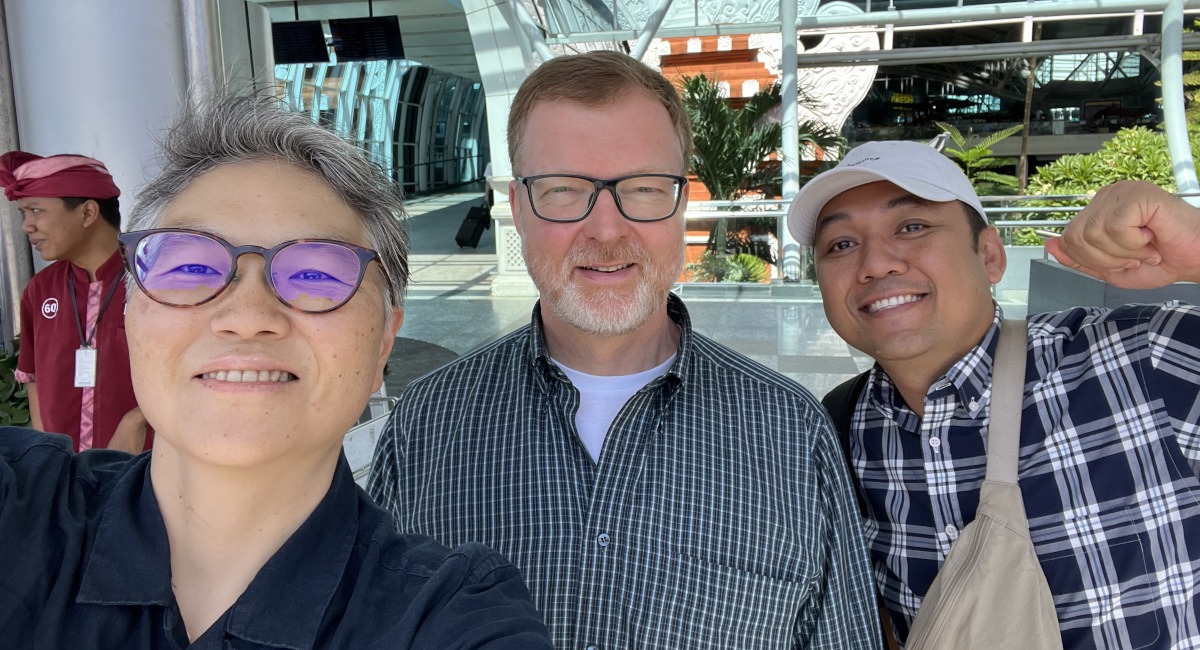 Recently, 15 safeguarders (as we are to be called) from each province or region in our Jesuit conference gathered in Bali, Indonesia. At first, I wondered why we were to meet in Bali, but as the meeting progressed, I realised that we were dealing with serious and delicate issues, so it was essential to have such an open and beautiful natural setting. Bali, known as the Island of the gods, has a palpable religious atmosphere. This was also a great source of consolation.
Recently, 15 safeguarders (as we are to be called) from each province or region in our Jesuit conference gathered in Bali, Indonesia. At first, I wondered why we were to meet in Bali, but as the meeting progressed, I realised that we were dealing with serious and delicate issues, so it was essential to have such an open and beautiful natural setting. Bali, known as the Island of the gods, has a palpable religious atmosphere. This was also a great source of consolation.
At this gathering, which began with spiritual conversation, we were able to discuss our respective worries, hardships, and consolations as brothers in the Lord, despite our multiple responsibilities, fatigue, and difficulties, and that was the most inspiring thing of all. We must deal with highly delicate matters and complicated procedures in a proper manner. I realise that the major superiors understand this aspect very well. Though many of us are struggling to juggle various responsibilities, I suppose we were not appointed “just because there was no one else to do it”!
Liz Kim from Jesuit Mission Australia explained in detail the contents of the financial support application form. Moreover, having a woman in this group of men was very significant. From time to time, the perspectives and opinions that she shared with us helped us to see points we tend to overlook and to appreciate sensitivities we might not have considered. This was a great source of encouragement.
Fr James Gascon of the Philippine Province shared his insights on accompanying perpetrators. This is a very delicate topic, and it takes courage to get involved. Nevertheless, it is crucial to help them make a fresh start while maintaining a compassionate understanding of their situation. In line with this, he explained the Catholic Safeguarding Institute’s (CSI) initiatives.
Also, on a larger scale, Fr Hans Zollner, the Director of the Institute of Anthropology at the Pontifical Gregorian University and a leading expert on safeguarding in the Catholic Church, spent the whole workshop listening carefully to our thoughts and providing instrumental input. Listening to him and having him listen to us allowed us to learn about the importance of this ministry and the challenges involved. Among the things we found impressive was his attitude towards being there for the victims. He is making great efforts to create a safe space for everyone, especially the vulnerable in the Church. It is undeniable that our focus tends to be on problem-solving and curative treatment of Jesuits, and that the fundamental aspects of preventing incidents and supporting victims are often secondary. Still, it was there that we were reminded of having an evangelical attitude.

We then listened to Fr John Guiney and Dr Sandra Racionero-Plaza explain the Promotion of a Consistent Culture of Protection (PCCP) and exchange opinions. This is an important initiative directed towards the Universal Society, so while there were still questions about how it could be applied to the diverse and unique situations in our provinces or regions, we all felt the need to work together to make it a reality. But it will not be easy!
Despite the lack of a universal definition for safeguarding, each culture has its own way of doing things, or, in other words, its own inculturation challenges. While giving importance to the spirit and direction of the PCCP, it is necessary to understand each culture and each particular mentality well and to find initiatives that match them. In Japan, for example, I think it is essential to find the anthropological, psychological, and spiritual depth of learning that is, unfortunately, often reduced to mere etiquette courses or dos and don’ts workshops. As I myself teach and do research at a university, I think it is important to explore such possibilities as a subject of greater academic interest.
Finally, but importantly, Fr Zollner emphasised the power of narrative in safeguarding. This resonates particularly with the Asia Pacific region, a treasure trove of narratives. I want to become more aware of the importance and usefulness of narrative in safeguarding to enhance protection of victims and accompany them.
In any case, I would like to thank Simon Davies from Australia and Fr Eko Sulistyo from Indonesia for their leadership and thoughtfulness in organising and running this workshop. I look forward to the day when we can share and learn from one another about safeguarding again. I would also like to thank the major superiors who have generously and trustfully sent us off. I hope that together we can find a better direction for the Safeguarding Ministry.
Safeguarding may not be easy or enjoyable. It is a ministry that carefully confronts our imperfect yet mysterious humanity. Ignatius of Loyola was one of the pioneers who grasped humanity more deeply than anyone else and discovered the presence of God within humanity. Following his ardent spirit and example, we, too, would like to find and create a balance between humanity and spirituality within the Safeguarding Ministry. St Ignatius, pray for our ministry!
Fr John Yosuke Sakai SJ is the safeguarding delegate of the Japanese Jesuit Province. He participated in the Jesuit Conference of Asia Pacific (JCAP) safeguarding delegates meeting from 8 to 12 July in Bali.
Watch this short video featuring reflections from safeguarding workshop participants, prepared by JCAP Coordinator for Safety in Ministry Simon Davies.

